In January of 1988, Dr. Mary Lin Hudson became the first woman on the Memphis Theological Seminary faculty. She would be the only woman on the MTS faculty until Dr Mitzi Minor was hired, five and a half years later. And when Dr. Hudson was tenured in 1998, she was the first female tenured professor at MTS. But Dr. Hudson’s ‘firsts’ didn’t begin at Memphis Theological Seminary. Before arriving at MTS, she was also the first woman pastor to serve Cedar Hill Cumberland Presbyterian Church in Greeneville, TN.
“Mary Lin bore a number of firsts,” Dr. Mitzi Minor said, “Which is an honor, but it can also be really hard. When you are a trailblazer, that means there isn’t a trail ahead of you. Being a ‘first’ in so many areas was a burden and a responsibility that she bore with grace and dignity.”
Hudson graduated with a BA from Bethel University in 1978, and received the MDiv from Memphis Theological Seminary in 1981. That same year, Hudson was ordained by the former Obion Presbytery of the Cumberland Presbyterian Church. She graduated with a Ph.D. in Church History from Vanderbilt in 1992. Her doctoral dissertation was an account of the preaching, life, and ministry of Rev. Louisa Woosley, the first woman ordained in the Cumberland Presbyterian Church in 1889.
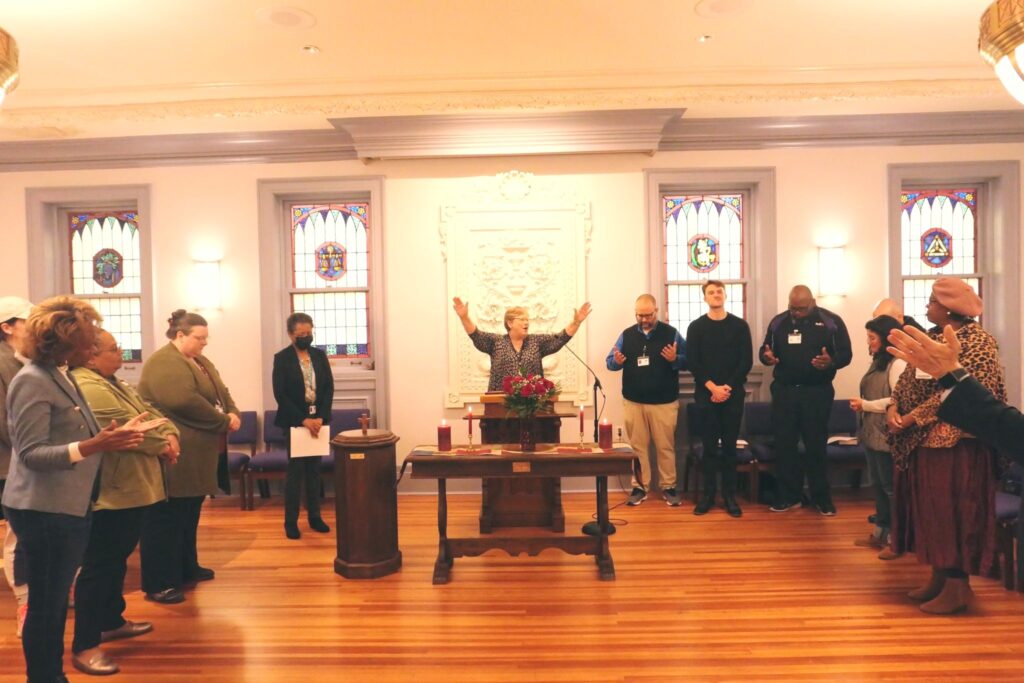
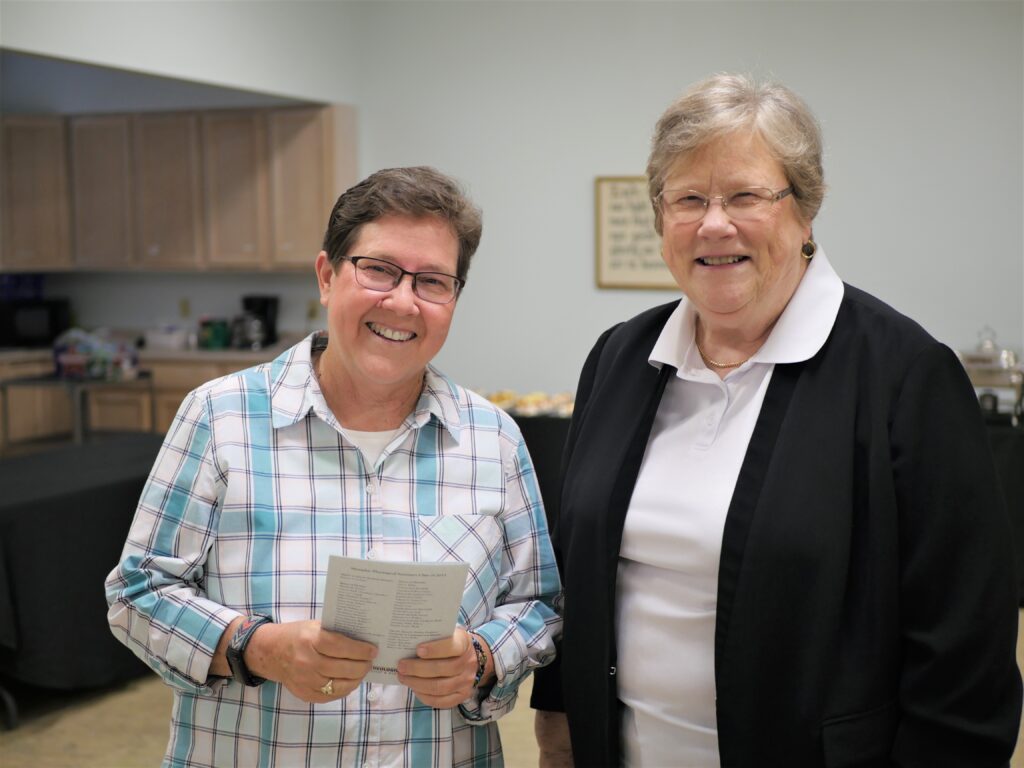
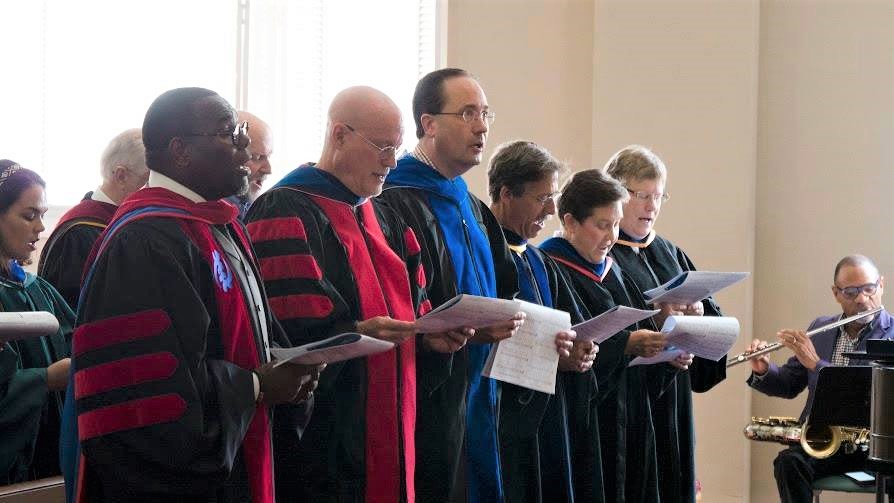
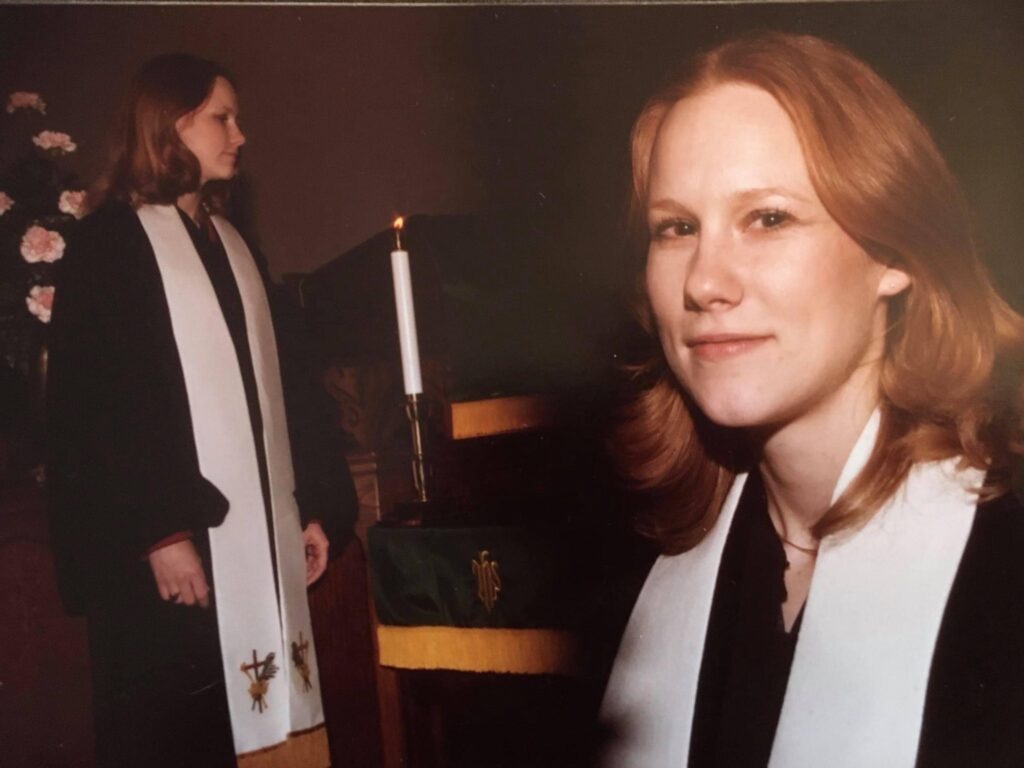
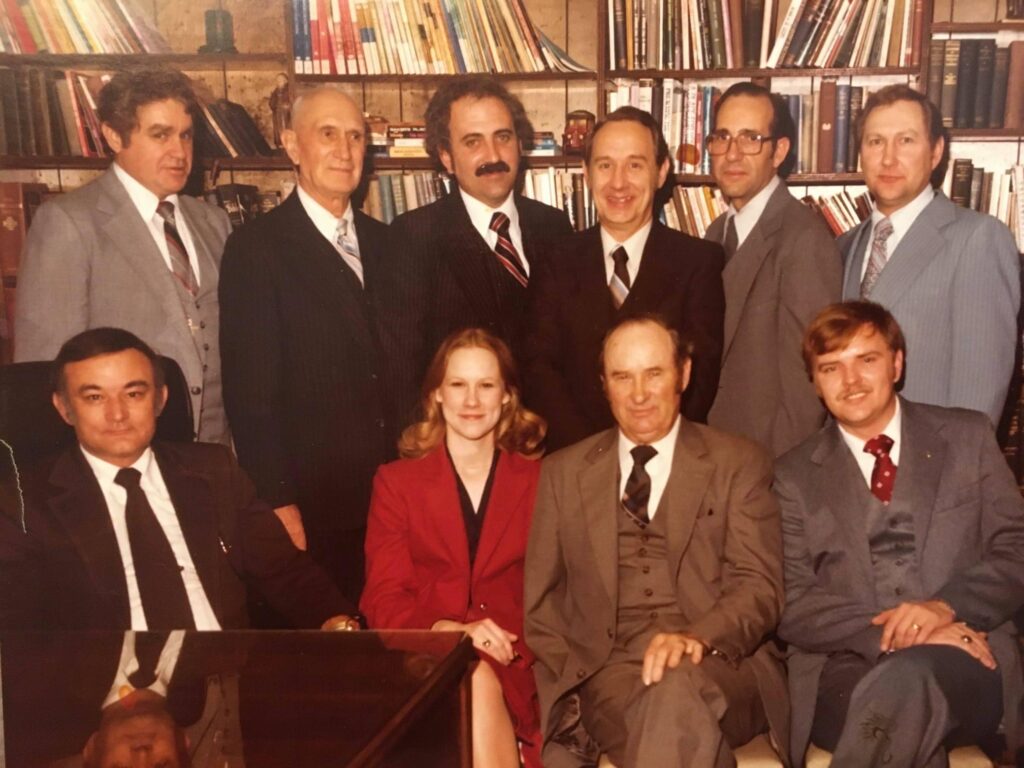
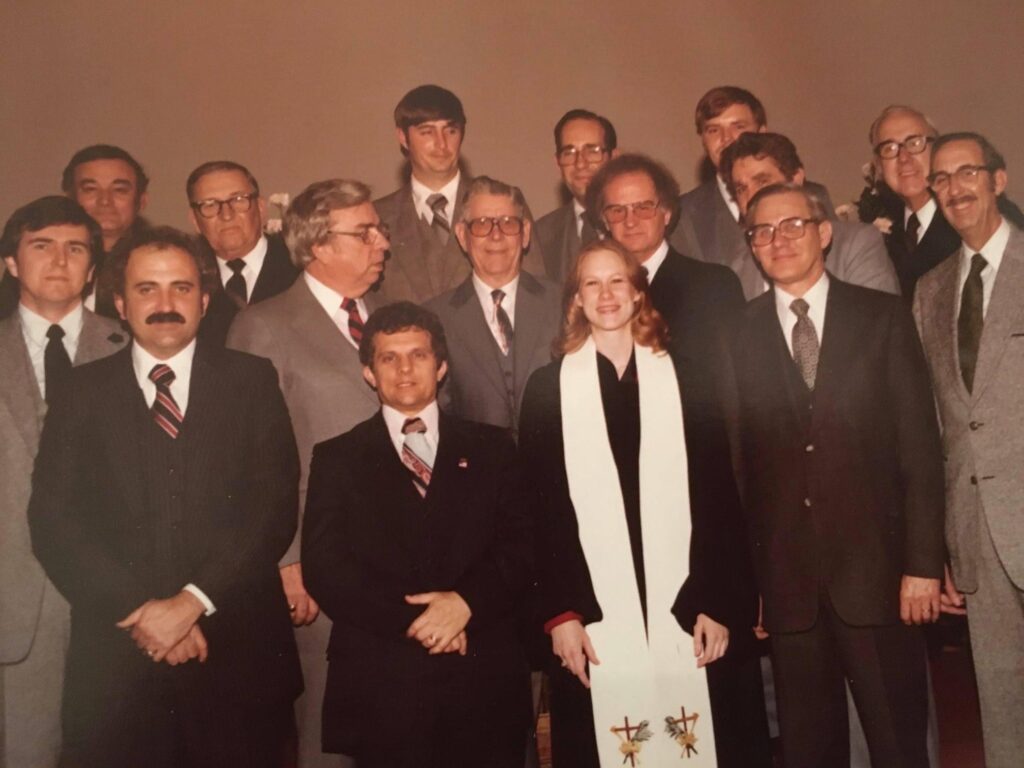
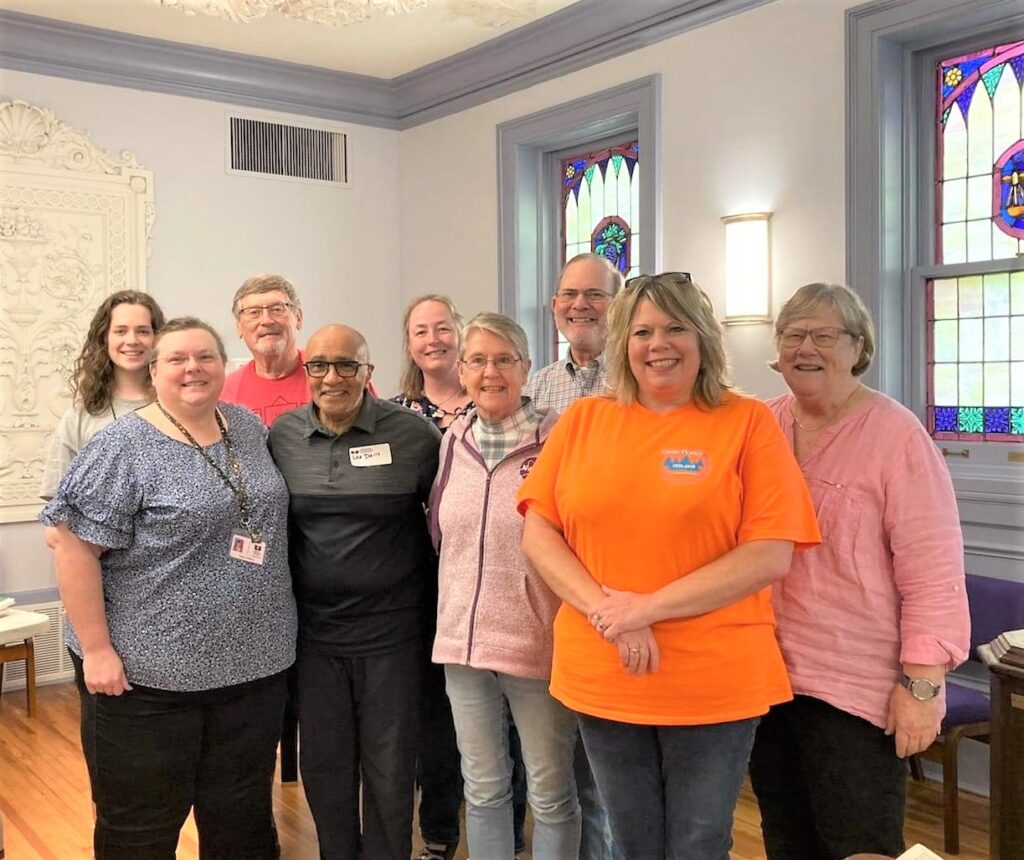
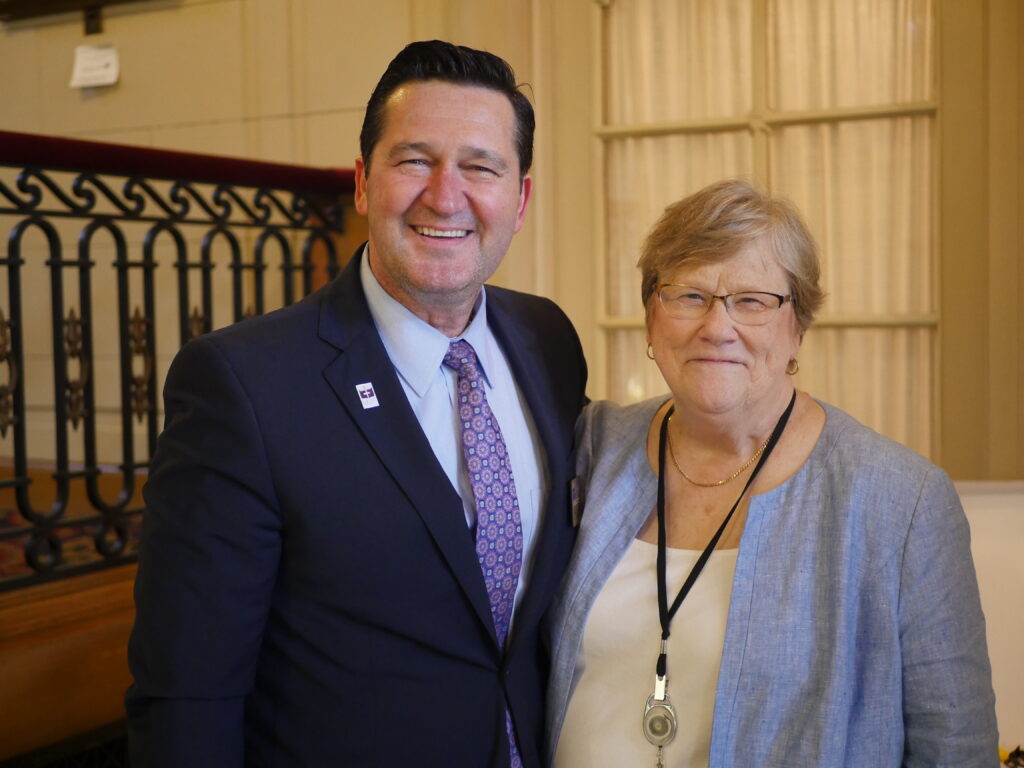
Early on, Dr. Hudson became a mentor for female students when the ordination of women was still controversial. Dr. Minor said, “There were a number of women who came to MTS and said God was calling them to something, but not to preach. Dr. Hudson enabled them to claim their voice as people who were being led by the Lord to speak. She has fulfilled her vocation and her calling here at Memphis Theological Seminary, helping women find their voice in the pulpit.”
Hudson has regularly taught “Theology of Preaching and Worship” and the “Worship and Preaching” practicum. She has also developed and taught electives on women in ministry, imagination in preaching, ethical implications of Christian liturgies, and feminist/womanist perspectives in preaching and worship, as well as teaching courses on Cumberland Presbyterian History and Theology.
“Worship is central to what we do,” Dr. Minor said. “If what we do isn’t worshiping God, then why are we here? She made chapel one of our priorities. She called it into being.”
During the pandemic, Dr. Hudson was instrumental in making sure that virtual chapel services remained a core part of the MTS community.
Dr. Hudson has also been a leader in accreditation efforts over the years, creating our assessment program and leading assessment of our academic programs. “That work is not showy, not attention-grabbing, but it’s foundational to what we do,” Dr. Minor said. “And when we gathered in the fall to talk about our Planning & Evaluation process, it was Mary Lin who reminded us that this work had to be borne of deep spiritual discernment. So that’s how we’re all thinking about it now.”
It is fitting that Dr. Hudson’s theme for the 2023 Bowen Lectures was the history and future of worship in America. As she retires after 35 years on the faculty at MTS, she remains a part not only of the seminary’s legacy, but an integral part of our future, as well. As Dr. Minor said, “Moving forward, our strategic planning process will be rooted in Mary Lin’s reminder that we cannot lose sight of who we are, and what we’re here to do.”
MTS President Jody Hill said, “I enrolled at MTS more than twenty-five years ago. As a student, I found Dr. Hudson to be a challenging, gracious, and intelligent professor. She still embodies those traits and many more to the betterment of our mission and ministry. Dr. Hudson is also a person of deep faith who always reminds us to seek the Holy Spirit as we strive to lead our institution in the ways of Christ. I am immensely grateful for her lifetime of ministry to MTS. She will be profoundly missed.”
Dr. Peter Gathje added, “In my role as Academic Dean I have relied on Dr. Hudson’s institutional memory many times. She has proved the adage true that ‘you can’t know where you’re going unless you know where you’ve been.’ Her vision of the church, of the place of theological education in preparation of people for ministry, and her commitment to open and honest conversation, have been crucial as MTS has negotiated the changing landscape of seminary education through the worst days of the pandemic and the uncertain future we all face. I will miss her questions, her sharp wit, and her calling of all of us to excellence.”
